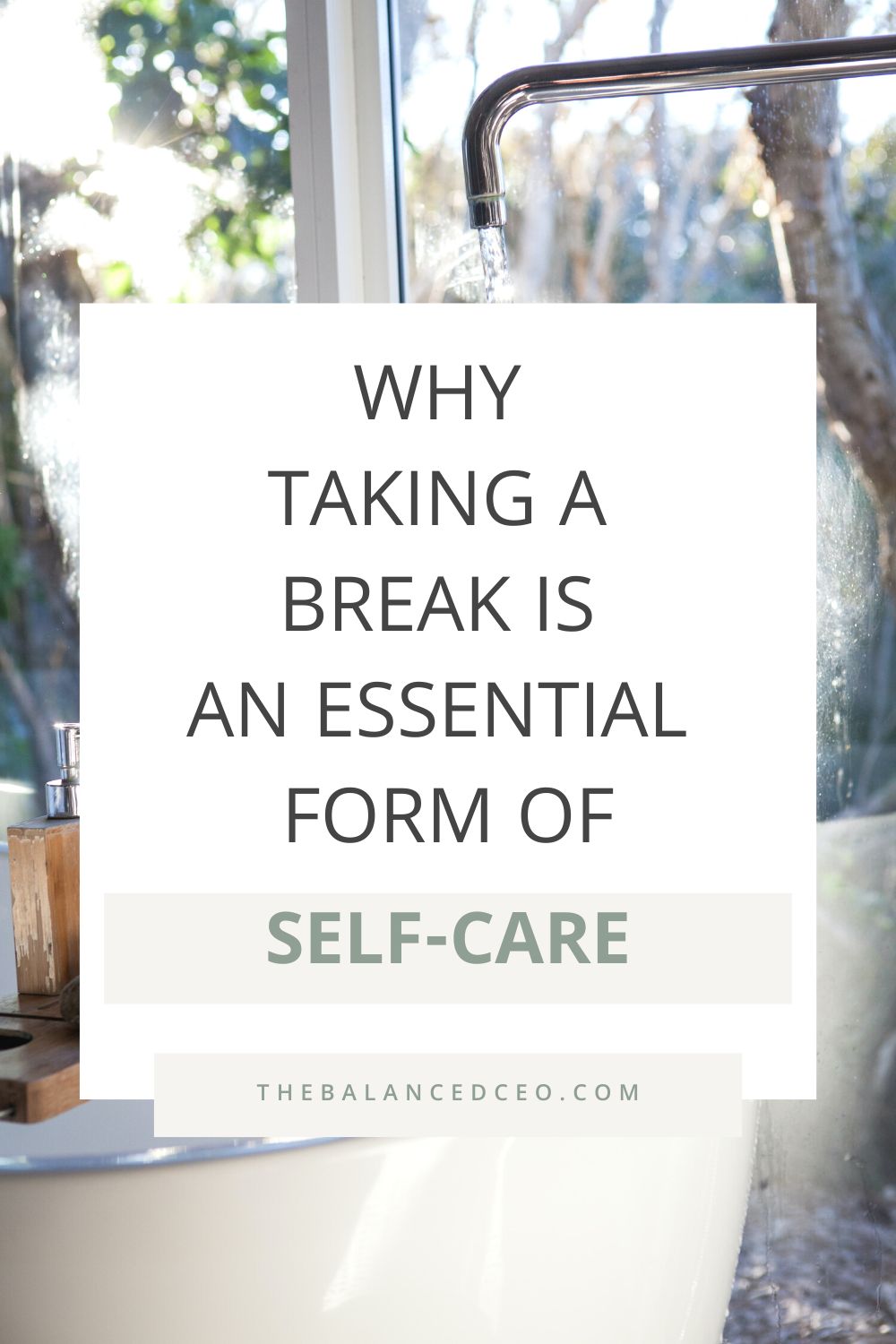This post may contain affiliate links, which means I’ll receive a commission if you purchase through my links, at no extra cost to you. Please read full disclosure for more information.

High stress levels are prompting people to follow self-care routines. Many turn to expensive solutions to help them relieve tension and refresh their mindsets, but one of the best things you can do for yourself doesn’t involve spending money whatsoever.
Taking breaks is an essential part of the working world. You should take advantage of them, paid or unpaid, to avoid burnout.
How Do You Define a Break?
First, you must determine what a break means to you. Workaholics may not take one and work straight through every opportunity to relax. However, a break is the perfect time to indulge yourself in the distractions you’ve been avoiding while working, like catching up with others on social media or looking up that question plaguing your mind all morning.
You should also consider how you feel about the length of break you take. Some people take short ones, as going back to work might be easier when you haven’t been away for long. There is no right way to take a break.
Taking breaks increases productivity since they allow your brain to indulge in the distractions it has actively tried to avoid. If you want to keep your mind sharp, you need to take time off throughout your day and after long periods of working. You need downtime after working for a while or you won’t be able to stay mentally and physically healthy.
Why Do You Need a Break?
Everyone needs breaks. Sometimes, you might just need a short one during the day to pick yourself up out of a slump. Other times, a few minutes won’t suffice. You may need to take a day or two off work for your mental health. Breaks can help you avoid fatigue, allowing you to make better decisions when you come back with a refreshed mind.
It might be difficult to convince yourself to take a break if you’re on a roll, but you need one. A midmorning break helps you feel motivated and improves concentration more than time off at any other time of day. Everyone in your team benefits, as it allows your brain time to clear itself and leave room for your current tasks.
A break from work could mean anything from a few days of PTO to a sabbatical, allowing you to do anything from taking care of yourself and loved ones to networking with people in your field. Sabbaticals can be for anything you want — including taking care of your mental health. When you take a leave from work, you can spend it relaxing in your own way or improving your skills to come back as a more productive, competitive employee.
You should also consider taking a vacation for a few days or at least getting out of your house. A break from the same old routine might leave you feeling refreshed, and you can take a trip somewhere that will provide you with ample benefits. For example, going to the ocean might calm down inflammatory skin conditions that stress might exacerbate and give you the vitamin D you need to boost your mood.
Everyone could use a break, especially when burnout is on the horizon. This can make you suffer in all areas of your life, both professional and personal. It’s always better to take a break, whether a few minutes or a few days away from the office, rather than face the consequences of deteriorating mental health.
5 Signs You Need a Break
Many people need a break from work and may not realize it. If you’re starting to experience the side effects of burnout, you should pay attention to what your body and brain are telling you and step away.
Sometimes, you may not notice these symptoms until they all pile up. Strive to remain in tune with your feelings to catch yourself before falling.
1. Your Eating Pattern Has Changed
A difference in your eating pattern isn’t always a sign of burnout, but when coupled with other symptoms, it’s an undeniable indicator that something could be wrong. You should always approach your meals with a mindful eating mindset, where you’re paying attention to what you consume and relishing every bite. Any unhealthy change regarding food might warrant some action on your behalf.
2. Your Immune System Is Down
How often do you get sick, and do you notice that you sometimes feel more ill when you have additional responsibility on your shoulders?
Chronic stress can age your immune system, leaving you at a greater risk of diseases like pneumonia and cancer. If you want to keep yourself healthy, you should take a break when you notice issues lingering longer than usual.
3. You Lack Goals
When you drift through life, indifferent to anything that might happen to you, you need to examine your stress levels. You should always have a goal in life so you look forward to the future. Your objectives don’t always have to align with your career — sometimes, they are more domestic, like wanting to start a family.
Strive to set goals for yourself, no matter how small. You might consider this feeling a sign of burnout, especially if you used to have aims and don’t anymore.
4. You Don’t Enjoy Anything
You might feel like the things that used to bring you joy just aren’t fun anymore. Or you may wonder whether certain hobbies are worth pursuing or why you started them in the first place.
Lacking the drive to do anything that used to bring you joy could be a sign of burnout or your mental health spiraling.
Take care of yourself and try to reignite the passion you once had for the things you love.
5. You Aren’t Getting Proper Sleep
Another clear indication of burnout is being unable to sleep.
Maybe your brain is racing and keeps you up at night, or perhaps you self-sabotage by staying up later so you can feel like you have some control and time to yourself.
Most adults need an average of eight hours of sleep per night, though specific needs may vary. If you find yourself getting less sleep than normal, you may need to consider the cause.
Embrace the Art of the Break
Once you understand how beneficial breaks are, it’s easy to work them into your daily life.
You need to care for your body and mind, which means taking regular intervals away from your desk.
Try to check in with yourself often to see how you’re feeling and whether you would benefit from a break. The only question you should have is where you will go on your well-earned vacation.

Cora Gold
Contributor
Cora Gold is the Editor-in-Chief of Revivalist magazine, a publication dedicated to happy, healthy, and mindful living.





Leave a Reply